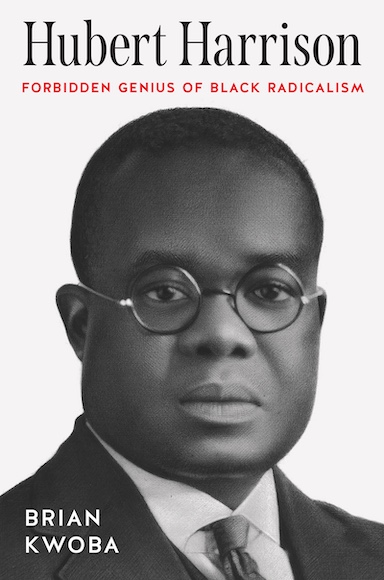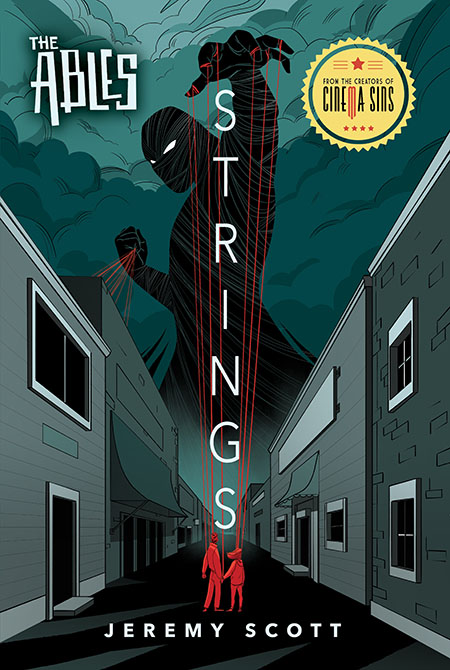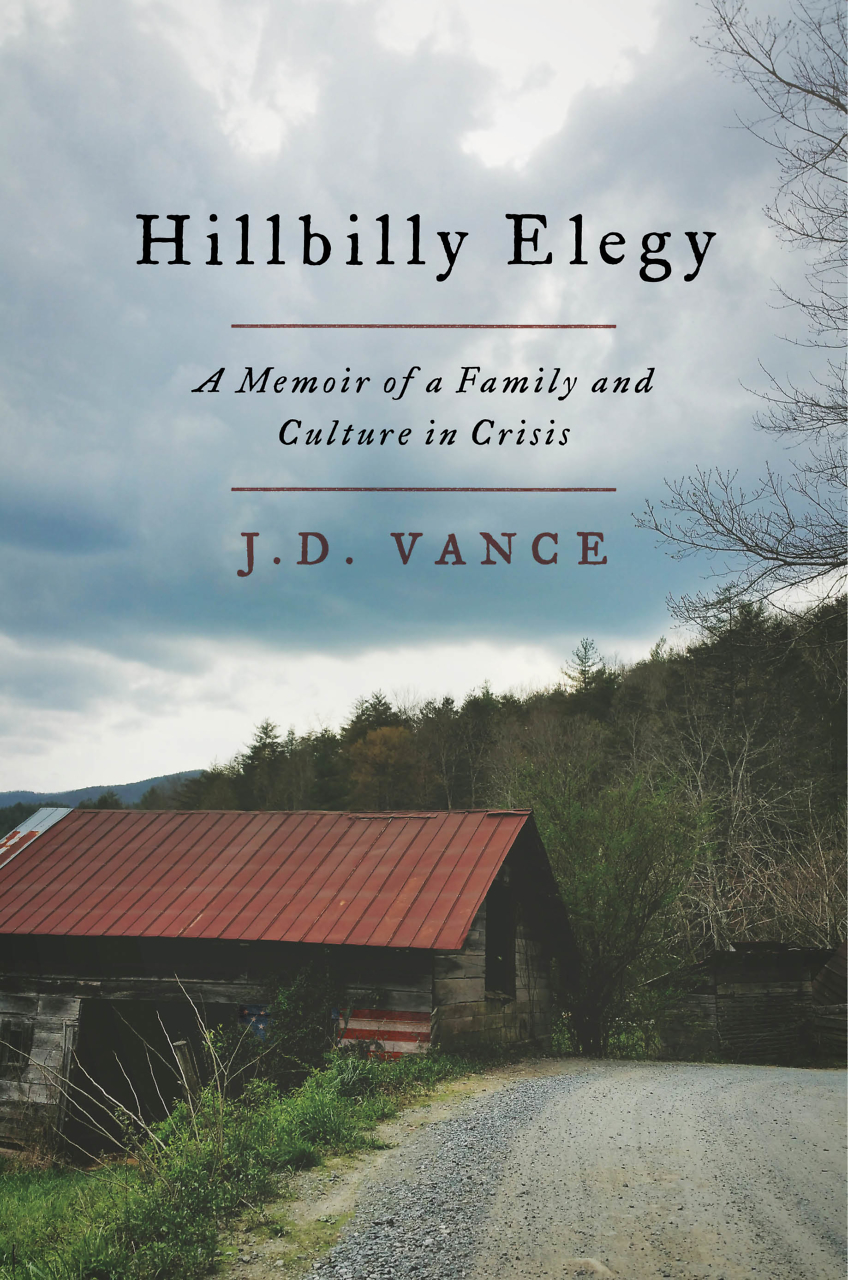Sidekick to a Material Girl
In her new memoir, Whit Hill remembers the pre-icon Madonna
Imagine you’re an aspiring dancer, and you’re stuck with a skinny, wise-cracking college roommate—a roommate with a herculean work ethic, a roommate who borrows your clothes without asking and looks better in them than you do, a roommate who wakes you up early on weekends to practice plies and has to be the center of attention at all times. Imagine her bringing you tea and popcorn in the mornings, taking you shopping for vintage clothes, dirty dancing at clubs, swimming naked. Imagine her leaving you notes saying, “I love you more and more and more.” When she high-tails it to New York City, imagine her stuffing her bra with a wad of dollar bills.
All of these things can be imagined. What probably cannot: the way your college roommate goes about transforming into an international pop icon known simply by her first name: Madonna. Not about Madonna is Whit Hill’s funny, poignant memoir about her not-yet-famous college roommate—and about her own transformation into an artist, dancer, choreographer, and mother. Hill, who now lives in Nashville with her musician husband, answered questions by email from Chapter 16 about her college days at the University of Michigan, and about her newest venture, songwriting.
Chapter 16: I have to admit, the first thing I did was flip to the middle of your memoir for photographs. What made you decide not to include any visuals beyond Madonna’s “Christmas letter” to you?
Whit Hill: Strangely, I don’t have any photos of the two of us together. It was a different time—people just didn’t take that many pictures. I certainly didn’t have a camera. Our mutual friend, Linda Alaniz, took photographs of us, separately, but—I don’t know—it just didn’t seem necessary to me to include pictures. Now that you mention it, I certainly could have included more images from my life. I know I like it when memoirs include photographs. Maybe future editions?
Chapter 16: Trying to keep readers focused on the youthful, gum-smacking, slip-of-a-dancer Madonna and not the iconic image we have of her now must have been an enormous challenge. When you see media representations of Madonna today, are you still able to see past them to the college roommate you remember?
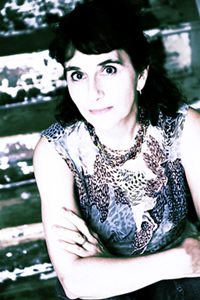 Hill: I didn’t worry about trying to keep the readers focused on the “then” Madonna. It wasn’t any sort of challenge for me. That was just how I knew her, and how I remember her. I’m an observant person, I kept manically detailed journals, and it was an intense, powerful time in my life so I had a lot of recorded and remembered material to work with. M. was definitely a part of that time; she challenged, enchanted and irritated me. Loosened me up for sure.
Hill: I didn’t worry about trying to keep the readers focused on the “then” Madonna. It wasn’t any sort of challenge for me. That was just how I knew her, and how I remember her. I’m an observant person, I kept manically detailed journals, and it was an intense, powerful time in my life so I had a lot of recorded and remembered material to work with. M. was definitely a part of that time; she challenged, enchanted and irritated me. Loosened me up for sure.
By the time I began writing the book, I was quite aware that people were extremely curious about her early, pre-fame years, so that intersected nicely with my memories.
Interestingly, one of the first rejection letters I received was from an agent who scoffed that I was painting Madonna as a “normal” person and that the world was not ready for that kind of information. I so disagree with him! Though I’m not a person who’s particularly obsessed with celebrities, I am curious about who people were before they became famous. Particularly historical figures—I love knowing about their childhoods and early years, imagining their toys and the food they ate and the conversations they had.
When I see pictures or video of Madonna today, I really don’t see the person I knew then. I’m not sure whom I’m seeing. Everything seems … performed, glamorous, hyper-aware of the camera. But I would assume that at home with her family, she’s probably much the same.
Chapter 16: Much of this book is about your own search for an authentic, interior self while your best college friend is searching for a self coalesced around fame and a “rule-the-world” mentality. How much of that difference do you think explains the fact that the two of you didn’t remain in close touch?
Hill: People do seem very curious about and invested in the “do you keep in touch” question. In all honesty, I think Madonna and I were close friends because we lived in very close proximity for nine months. I don’t think we would have been close friends otherwise; she would have been far too intimidating for me at that time in my life. We were soooo different but made adjustments in our personalities and somehow made it work out really well. (I think women are pretty good at this.) We certainly did care for each other, bolster each other.
I learned things from her that I deeply value in my life. The one that comes to mind is the ability to dance in a bar. I know that sounds inconsequential, but it’s been kind of huge for me. Those long-ago nights at the Rubaiyat evolved into a life-long love of bar-dancing. I learned how to feel free and clever and beautiful and at one with everyone and everything. My husband is a musician and band leader and I’ve spent hundreds of evenings at his gigs, dancing—with friends or even dancing alone. And I’ve spent many hours watching people dance. As I said in the book, dancing at a bar seems to be the most private thing we do in public. It is endlessly fascinating to me. People reveal so much about themselves when they dance. That fascination started during my “tutelage” with M.
I think the reason we didn’t keep in touch was that our lives went in opposite directions. I know that sounds hackneyed, but it’s true. (Also, I left New York! That didn’t help our friendship.) We are both artists but with very different sensibilities and goals. I love performing (theater, dance, monologues, songs) and I’ve had some small success, but at my core I am quite simply too introverted to take a stab at fame. It would not work for this girl. Madonna went all crazy-famous, and I had beautiful babies, had fun being a hinterland choreographer in Michigan, [and] then moved to Nashville. It all worked out.
Chapter 16: How have you reconciled yourself over the years to your own participation in the culture of celebrity while being interviewed by VH1 and so many other shows and magazines about your famous roommate?
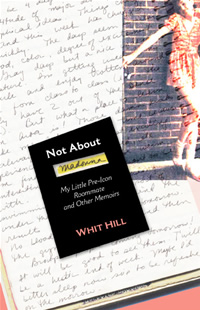 Hill: Oh, it’s kind of a momentary “ick.” Some of the interviews were a little bit fun. I met some nice people and some real slimehats. But once I realized that I could observe and write about the interviews and put them in a book of my own making, well, that made them infinitely more bearable. Whenever I wondered if I was somehow lacking in integrity by insisting on being paid for my recollections, I just thought about Madonna and what she would have done. That’s another thing I learned from her: take advantage of opportunities and don’t overthink. Very helpful.
Hill: Oh, it’s kind of a momentary “ick.” Some of the interviews were a little bit fun. I met some nice people and some real slimehats. But once I realized that I could observe and write about the interviews and put them in a book of my own making, well, that made them infinitely more bearable. Whenever I wondered if I was somehow lacking in integrity by insisting on being paid for my recollections, I just thought about Madonna and what she would have done. That’s another thing I learned from her: take advantage of opportunities and don’t overthink. Very helpful.
Chapter 16: You write a great deal about your mother and about Madonna’s mother, who died when she was very young. Does your estrangement from your own mother give you any insights into your friend that you didn’t have at the time?
Hill: I don’t know that it’s given me any insights into Madonna. When it comes to this issue, I tend to only think about myself and how it has been such an unfortunate and unnecessary throughline in my life. I think I explore this issue pretty thoroughly in the book, actually. I will say that being disowned by a parent without any explanation is insanely difficult to navigate. My dad, for the record, rocks.
Chapter 16: How long have you been in Tennessee? Do you find the artistic community here as close-knit as the community of dancers and choreographers you worked with in Michigan?
Hill: Al and I moved to Nashville on April 28, 2008, after ten years of planning. I feel unbelievably fortunate to have landed in an amazing community of songwriters here. They didn’t have to welcome me. They have plenty of songwriters here. More than enough. But they made me a space, and I am so thankful. Dancewise, I don’t perform much anymore, but several times a week, I teach the splendid children of East Nashville to bend and straighten their sweet little legs, and to shake and freeze, and to leap over the mud puddle. I absolutely love it.
Chapter 16: Do you think Madonna still knows how to bake bread?
HIll: It wouldn’t surprise me at all. Most likely an ever-evolving sourdough that tastes totally different every couple of years or so.
Whit Hill will appear at the 2011 Southern Festival of Books, held October 14-16 in Nashville.

